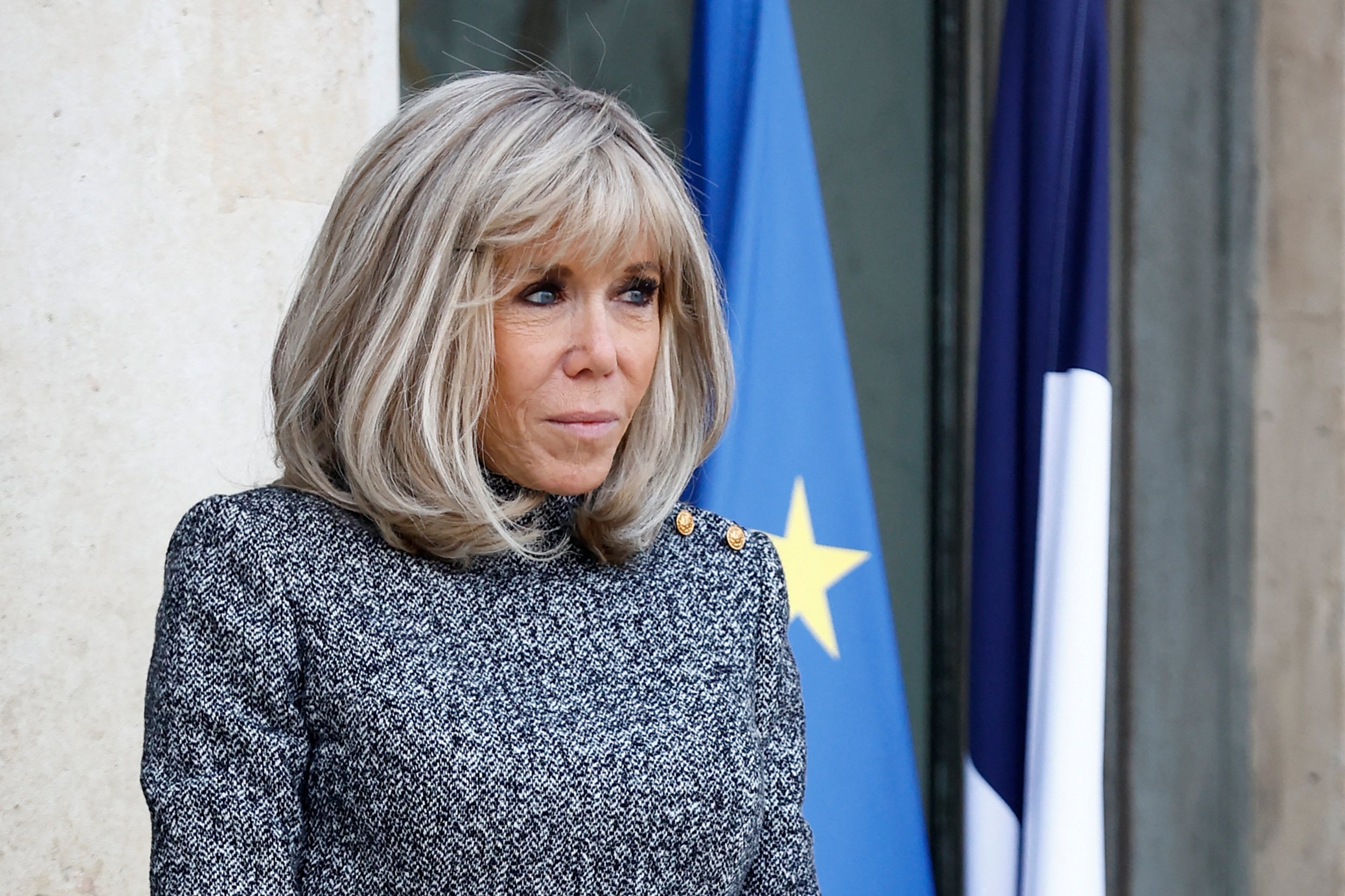Brigitte Macron hits out at gender-neutral French grammar system
Ms Macron described the push for a more gender-inclusive iteration of the French language a ‘cultural position’

French president Emmanuel Macron’s wife has expressed her opposition to a recent surge in the use of a gender-inclusive form of French because of her love of the language.
“Inclusive writing”, a gender-neutral spelling system that is being employed by academic institutions and some authorities, has become a hot topic in the culture wars between the left-leaning youth and the country’s conservatives.
Speaking to L’Obs magazine, Brigitte Macron said: “Learning French is already difficult. Let’s not add complexity to complexity. It’s a cultural position.”
She explained she was not against adults choosing to change gender, but insisted she was speaking for “the silent majority” in rejecting moves to promote alterations to the French language,
French, unlike English, is a gendered language in which all nouns are assigned a feminine or masculine article.
This increasingly popular system, however, seeks to create an alternative, gender-inclusive equivalent, requiring the speaker to affix a hyphenated -e and -s to add feminine and plural senses to masculine adjectives and nouns. So, the students (les etudiants) becomes les etudiantes – both female and male students are referred to through the addition of the feminine ‘e’.
Though France does not have an official equivalent to the English they/them pronoun, inclusive writing opts for the use of iel (singular) or iels (plural), a mixture of il (he) and elle (she) pronounced “yell”.
While inclusive spelling is now used by the socialist-led Paris council and the Sorbonne, some institutions, such as Academie Francaise – a government agency that heads up matters pertaining to the French language – continues to dismiss the system as a symptom of American “woke” culture.
Indeed, in 2017, the council ruled that the form was counterproductive to promoting inclusivity and was “harmful to the practice and comprehension of the French language”.
Though Ms Macron rarely takes to the political stage, last year she attacked the Robert dictionary for listing the iel pronoun.
“There are two pronouns, il and elle,” she said then. “The language is beautiful. And two pronouns are fine,” she concluded.



Join our commenting forum
Join thought-provoking conversations, follow other Independent readers and see their replies
Comments